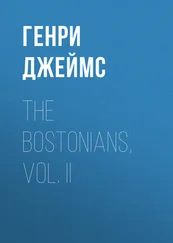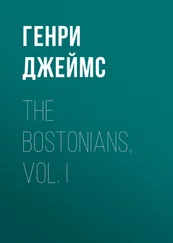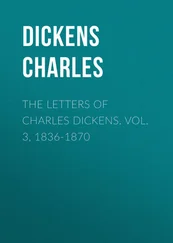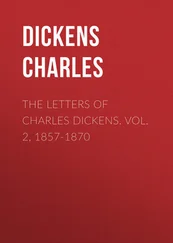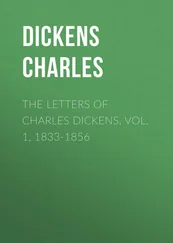Генри Джеймс - The Letters of Henry James. Vol. II
Здесь есть возможность читать онлайн «Генри Джеймс - The Letters of Henry James. Vol. II» — ознакомительный отрывок электронной книги совершенно бесплатно, а после прочтения отрывка купить полную версию. В некоторых случаях можно слушать аудио, скачать через торрент в формате fb2 и присутствует краткое содержание. Жанр: Биографии и Мемуары, foreign_antique, foreign_prose, на английском языке. Описание произведения, (предисловие) а так же отзывы посетителей доступны на портале библиотеки ЛибКат.
- Название:The Letters of Henry James. Vol. II
- Автор:
- Жанр:
- Год:неизвестен
- ISBN:нет данных
- Рейтинг книги:4 / 5. Голосов: 1
-
Избранное:Добавить в избранное
- Отзывы:
-
Ваша оценка:
- 80
- 1
- 2
- 3
- 4
- 5
The Letters of Henry James. Vol. II: краткое содержание, описание и аннотация
Предлагаем к чтению аннотацию, описание, краткое содержание или предисловие (зависит от того, что написал сам автор книги «The Letters of Henry James. Vol. II»). Если вы не нашли необходимую информацию о книге — напишите в комментариях, мы постараемся отыскать её.
The Letters of Henry James. Vol. II — читать онлайн ознакомительный отрывок
Ниже представлен текст книги, разбитый по страницам. Система сохранения места последней прочитанной страницы, позволяет с удобством читать онлайн бесплатно книгу «The Letters of Henry James. Vol. II», без необходимости каждый раз заново искать на чём Вы остановились. Поставьте закладку, и сможете в любой момент перейти на страницу, на которой закончили чтение.
Интервал:
Закладка:
To Mrs. Dew-Smith
This refers to the revision of Roderick Hudson , which was to head the "New York" edition of his novels, now definitely announced.
Lamb House, Rye. November 12th, 1906.Dear Mrs. Dew-Smith,
Very kind your note about the apples and about poor R.H.! Burgess Noakes is to climb the hill in a day or two, basket on arm, and bring me back the rosy crop, which I am finding quite the staff of life.
As for the tidied-up book, I am greatly touched by your generous interest in the question of the tidying-up, and yet really think your view of that process erratic and—quite of course—my own view well inspired! But we are really both right, for to attempt to retouch the substance of the thing would be as foolish as it would be (in a done and impenetrable structure) impracticable. What I have tried for is a mere revision of surface and expression, as the thing is positively in many places quite vilely written! The essence of the matter is wholly unaltered—save for seeming in places, I think, a little better brought out. At any rate the deed is already perpetrated—and I do continue to wish perversely and sorely that you had waited—to re-peruse—for this prettier and cleaner form. However, I ought only to be devoutly grateful—as in fact I am—for your power to re-peruse at all, and will come and thank you afresh as soon as you return to the fold; as to which I beg you to make an early signal to yours most truly,
HENRY JAMES.To Mrs. Wharton
The desired visit to George Sand's Nohant was brought off in the following year, when H. J. motored there with Mrs. Wharton. "Rue Barbet de Jouy" is the address in Paris of M. Paul Bourget.
Reform Club, Pall Mall, S.W. November 17th, 1906.Dear Mrs. Wharton,
I had from you a shortish time since a very beautiful and interesting letter—into the ink to thank you for which my pen has been perpetually about to dip, and now comes the further thrill of your "quaint" little picture card with its news of the Paris winter and the romantic rue de Varenne; on which the pen straightway plunges into the fluid. This is really charming and uplifting news, and I applaud the free sweep of your "line of life" with all my heart. We shall be almost neighbours, and I will most assuredly hie me as promptly as possible across the scant interspace of the Channel, the Pas-de-Calais &c: where the very first question on which I shall beset you will be your adventure and impression of Nohant—as to which I burn and yearn for fond particulars. Perhaps if you have the proper Vehicle of Passion—as I make no doubt—you will be going there once more—in which case do take me! And such a suave and convenient crossing as I meanwhile wish you—and such a provision of philosophy laid up, in advance, for use in, and about, rue Barbet de Jouy! You will have finished your new fiction, I "presume"—if it isn't presumptuous—before embarking? and I do so for the right of the desire to congratulate, in that case, and envy and sympathise—being in all sorts of embarras now, myself, over the finish of many things. I pant for the start of that work and languish to take it up. I think I have had no chance to tell you how much I admired your single story in the Aug. Scribner —beautifully done, I thought, and full of felicities and achieved values and pictures. All the same, with the rue de Varenne &c., don't go in too much for the French or the "Franco-American" subject—the real field of your extension is here —it has far more fusability with our native and primary material; between which and French elements there is, I hold, a disparity as complete as between a life led in trees, say, and a life led in—sea-depths, or in other words between that of climbers and swimmers—or (crudely) that of monkeys and fish. Is the Play Thing meanwhile climbing or swimming?—I take much interest in its fate. But you will tell me of these things—in February! It will be then I shall scramble over. I go home an hour or two hence (to stay as still as possible) after a night—only—spent in town. The perpetual summonses and solicitations of London (some of which have to be met) are at times a maddening worry—or almost. I am wondering if you are not feeling just now perhaps a good deal, at Lenox, in the apparently delightful old 1840 way—a good snowstorm ending, and the Westinghouse colouring, as I suppose, a good deal blurred. But how I want to have it all—the gossip of the countryside—from you! Some of it has come to me as rather dreadful … and that is what some of the lone houses in the deep valleys we motored through used to make me think of!…
I am meanwhile yours very constantly, HENRY JAMES.To W. E. Norris
My dear Norris,
I think it was from here I wrote you last Christmas; by which I devoutly hope I don't give you a handle for saying: "And not from anywhere since then." But I am but too aware that it has been at the best a hideous record of silence and apparent gloom, and also fully feel that after such base laideurs of behaviour explanations, attenuations, protestations, are as the mere rustle of the wind and had really better be left unuttered. That only adds to the dark burden of one's consciousness when one does write; one crawls into the dear outraged presence with all one's imperfections on one's head. So I'll indulge, at any rate, in no specific plea—but only in that general one of the fact that the letter-writing faculty within me has become extinct through increasing age, infirmity, embarrassment (the spelling faculty, even, you see, almost extinct,) and general demoralization and desolation. Twenty reproachful spectres rise up before me—out of whom your fine sad face is only the most awful. All I can say for myself (and you ) is that among these feeble reparations that I am trying to make in the way of "hardy annuals"—hardy in the sense, I fear, of a sort of shameful brazenness—this "Christmas letter" to you takes absolute precedence. I wrote indeed to Rhoda Broughton a couple of days since, from town, but that was a melancholy matter on the occasion of my having gone up to poor dear Hamilton Aïdé's memorial service (where I didn't see her, though she may have been present, and of which I thought she would care for some little account. It was a very beautiful and touching musical service. But I haven't seen her for a long time, alas!—amid these years of more and more interspaced—and finished—occasions.) Of course I am hoping that this will lie on your table on Xmas morning—in all sorts of charming company, and not before and not after. But it's difficult to time communications at this upheaved season, especially from another (non-London) province, and I trust to the happy hazard, though still a little ruffled by a sense of the break-down of things (the "public services") that compelled me yesterday, coming down here from Victoria, to be shoved into (as the only place in the train) the small connecting-space between two Pullmans, where I stuck, all the way, in a tight bunch of five or six other men and three portmanteaux and boxes: quite the sort of treatment (one's nose half in the w.c. included) that the English traveller writes from Italy infuriated letters to the Times about. I figure you at all events exempt from any indignity of movement (and the conditions of movement nowadays almost all include indignity) and still sitting up on your Torquay slope as on a mild Olympus and with this strife of circulating humans far below you. But when I reflect that I don't know , for certain, any of your actualities I reflect with a crimson countenance on the months that have elapsed. I have before me as I write a beautiful letter from you, of the date of which nothing would induce me to remind you—but that is not quite your contemporary history.... Putting your own news at its quietest, however, my own runs it close—for save for this small episode (a stay with some old and intensely tranquil American friends established here for the ending of their days,) and putting aside a few days at a time in London, which I find periodically inevitable, and even quite like, I haven't stirred for ages from my own house, the suitability of which to my modest scheme of existence grows fortunately more and more marked. I spent last summer there—the most beautiful of one's life I think—without the briefest of breaks—and that gregarious time is the one at which I like least to circulate. The little place, alas, becomes itself—like all places save Torquay, I judge—more and more gregarious: and there were a good many days when even my own small premises bristled too much with the invader. But there is a great virtue in sitting tight—you sit out many things; even bores are, comparatively speaking, loose; and I had a blest sort of garden (by which I'm far from meaning gardening) summer. What it must have been beside your sapphire sea! I return, at any rate, in a few days, to sit tight again, till early in February, when there are reasons for my probably going for five or six weeks to Paris; and even possibly—or impossibly—to Rome; one of the principal of these being that the prospect fills me with a blackness of horror that I find really alarming as a sign of moral paralysis and abjection; so that I ought to try to fly in the face of it. But I shall fly at the best, I fear, very low!…
Читать дальшеИнтервал:
Закладка:
Похожие книги на «The Letters of Henry James. Vol. II»
Представляем Вашему вниманию похожие книги на «The Letters of Henry James. Vol. II» списком для выбора. Мы отобрали схожую по названию и смыслу литературу в надежде предоставить читателям больше вариантов отыскать новые, интересные, ещё непрочитанные произведения.
Обсуждение, отзывы о книге «The Letters of Henry James. Vol. II» и просто собственные мнения читателей. Оставьте ваши комментарии, напишите, что Вы думаете о произведении, его смысле или главных героях. Укажите что конкретно понравилось, а что нет, и почему Вы так считаете.


